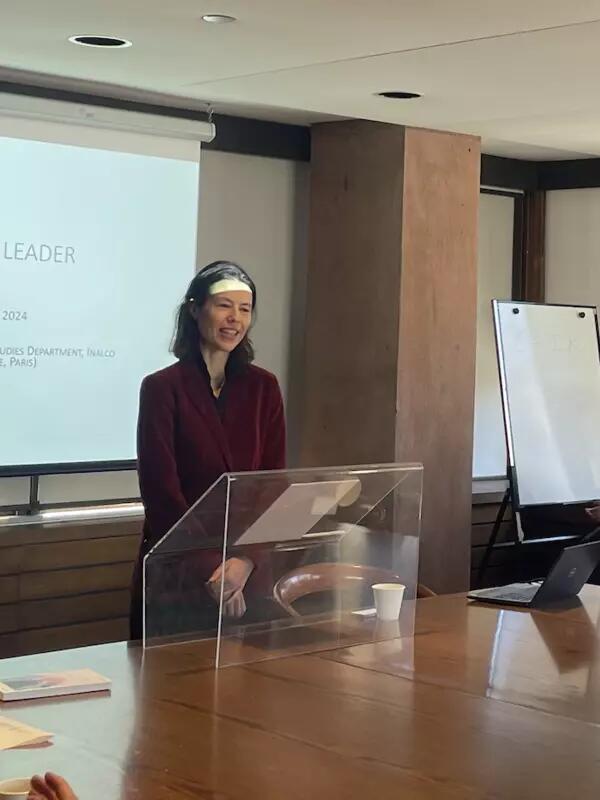
Event Report: Japan, A Discreet Leader in International Relations
On February 14, 2024, the Centre for the Study of Global Japan hosted Guibourg Delamotte, Professor of Political Science and Head of the Japanese studies department of the French Institute of Oriental Studies (Inalco), for a presentation on Japan’s leadership role in international relations.
Delamotte began by defining the concept of leadership and distinguished how it looked in Japan before and during the government of Shinzo Abe. Under Abe, Japan was able to take a larger leadership position in the Indo-Pacific region and established the Free and Open Indo-Pacific (FOIP) strategy that many other countries in the region later also adopted. Delamotte emphasized the importance of the FOIP as a mechanism for supporting the international order, building connectivity and quality infrastructure, and as a part of a three-fold strategy to deter Chinese influence.
Aside from the United States, Delamotte identified two countries as playing a crucial role in the development of Japan’s leadership and defense diplomacy in the Indo-Pacific region: Australia and the United Kingdom. Both countries formed bilateral defense agreements with Japan under Abe’s leadership to increase security cooperation, such as the Global Combat Program and the Reciprocal Axis Agreement (RAA).
Delamotte highlighted the different aspects of the three-fold strategy and their importance. Firstly, the Japanese Self-Defense Force (SDF) as a diplomatic tool through multilateral exercises and defense attaches. Secondly, connectivity through the FOIP and the Comprehensive and Progressive Agreement for Trans-Pacific Partnership (CPTPP). And lastly, responding to China’s ability to apply economic pressure and potential for rare earth blackmail.
Delamotte provided several diplomatic highlights of current Japanese Prime Minister Fumio Kishida. With technological developments and the growing influence of AI, Kishida has developed relationships with other nations on cyber security as well as increasing and developing Japanese defense forces. Lastly, Delamotte pointed out the international effects of growing Japanese power in the Indo-Pacific with European, particularly French, reluctance to embrace discreet Japanese leadership with the decision to open a NATO liaison office in Japan being struck down.
Following the presentation, there was a lively question and answer session. The audience was concerned with the possible effects of changing US leadership, the extent to which changes in Japan’s leadership were due to the personality of leaders, and the domestic sources of change brought forth by prime ministers and their followers. We would like to thank Professor Delamotte for sharing her insights and the audience for their enthusiastic participation in the Q&A session.

